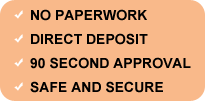
A budget forms the foundation of every successful financial plan. A budget allows you to know and understand where your money is going each month and is crucial if you want to get a handle on your personal finances. Many people have a negative view of living on a budget- they think it means totally restricting what you spend and doing away with all the fun things in your life. But a budget is actually about knowing how much money you have and where it goes. It allows you to make smart choices on what you want to spend your money on.
At first, it may seem like a tedious exercise to sit down and create a workable budget. You may think that your financial house is already in order. But a good budget can help everyone! Whether you live from paycheck to paycheck or earn a sizeable income, a budget can keep your spending on track. It also lets you see exactly what you're spending your hard-earned money on which makes it easier to determine where you can make cuts. Freeing up more money enables you to put more funds toward your financial goals.
A budget is really not that complicated. In simple terms, it is a breakdown of how much money you have coming in (income) and how much you have going out (expenses). Without this important information, the road to financial independence will be a bumpy one.
Studies have shown that most people have an unrealistic idea about what they actually spend each month. It can be a shock to realize that the $5 cappuccino you purchase each morning on the way to work totals about $100 a month. When you compare it to making your coffee at home and taking it with you, the savings are obvious. A budget allows you to see the "big picture" as far as your spending habits. Until you know this, it's hard to make significant and positive changes.
This is the first step in creating a budget. Generally you can just check your pay stub for the correct amount. Be sure to list your net take-home pay, not gross income. If you are married, include your spouse's income. Also list any other sources of income, such as child support or alimony, investment dividends, or a second business.
After calculating your total monthly net income, you need to determine your expenses. Begin with your fixed, regular monthly bills. These will include your rent or mortgage payment, any car payments, insurance premiums, and taxes, if any. Some expenses can vary each month. Be sure to include all utility bills, all credit card debt, food and gasoline expenditures. Also list any recurring medical expenses, including prescriptions, and money spent on entertainment.
One of the easiest ways to get an accurate picture of what you are spending is to keep all receipts for an entire month and then add them up. Most people are surprised by how much they spend on "small" purchases. Looking over receipts is an excellent dose of reality when it comes to money management. It's hard to ignore the facts when you are staring at the actual receipts!
Once you have determined your total income and your total monthly expenses you will have a clearer picture of your financial situation. Just subtract your expenses from your income. You will have either a positive or negative number. Don't panic if you have more expenses than income. The whole reason for creating a budget is to show you where you can make positive cash-flow changes. If you don't have a handle on what you are spending, it's very easy to slide more and more into debt.
Many times, small changes in your spending habits can make a big difference. If you are married or have children, be sure to include the entire family in the budgeting process. On top of teaching your children invaluable lessons about managing money, a budget needs the cooperation and inclusion of every family member to work successfully.
The following suggestions can result in significant savings over time. Use these savings to apply to high-interest credit card debt or contribute to your retirement.

